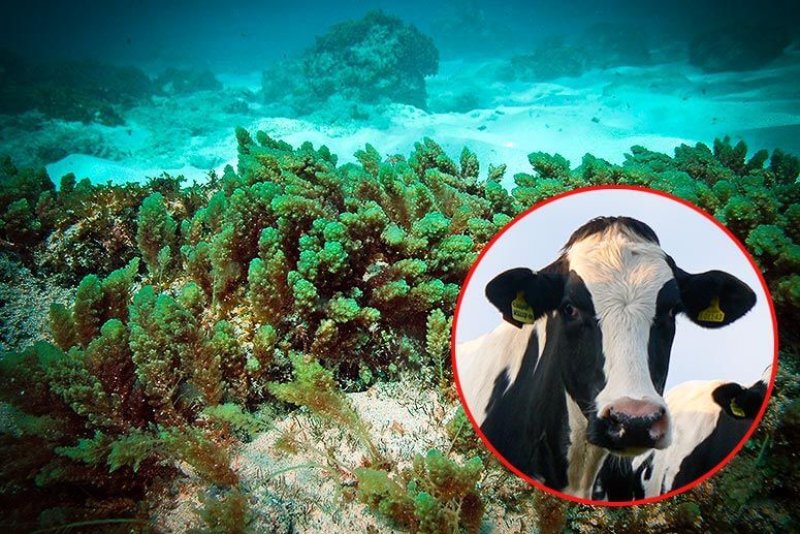Reducing methane from livestock, and cows in particular, has long been a goal of scientists and policymakers but is especially tricky: How do you change a fundamental fact of animal biology in an ethical way that doesn’t affect milk or meat?
In lab tests and field trials, adding a small proportion of [seaweeds Asparagopsis taxiformis and Asparagopsis armata] to a cow’s daily feed — about 0.2 of a percent of the total feed intake in a recent study — can reduce the amount of methane by 98 percent. That’s a stunning drop when most existing solutions cut methane by about 20 or 30 percent.
Meanwhile, growing seaweed used for the feed supplement could also help sequester carbon dioxide, another greenhouse gas, and reduce ocean acidification, because the plant sucks up carbon in the water as food.
Rob Kinley, the scientist who identified asparagopsis as a methane inhibitor, said it might just be the most promising way to eliminate methane emissions from livestock in the next decade.
That’s significant because livestock overall account for about 15 percent of global greenhouse gas emissions, with nearly 40 percent of that linked to methane from the digestive process according to the United Nations’ Food and Agriculture Organization. The amount of methane from livestock production alone is about the equivalent of the emissions from about 650 million cars.































